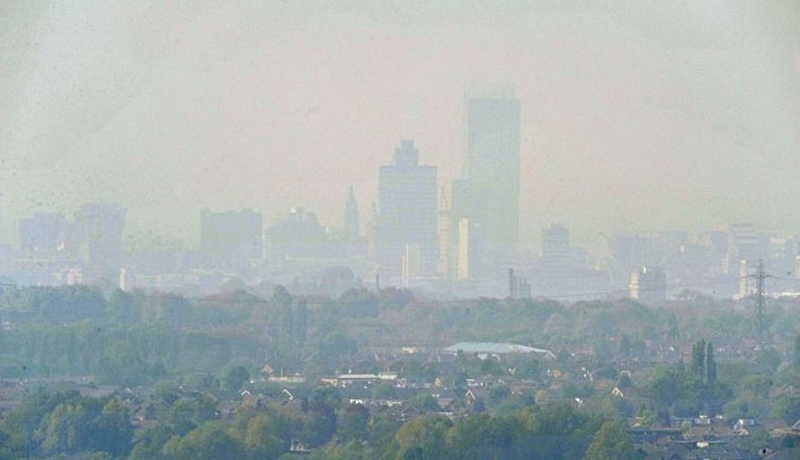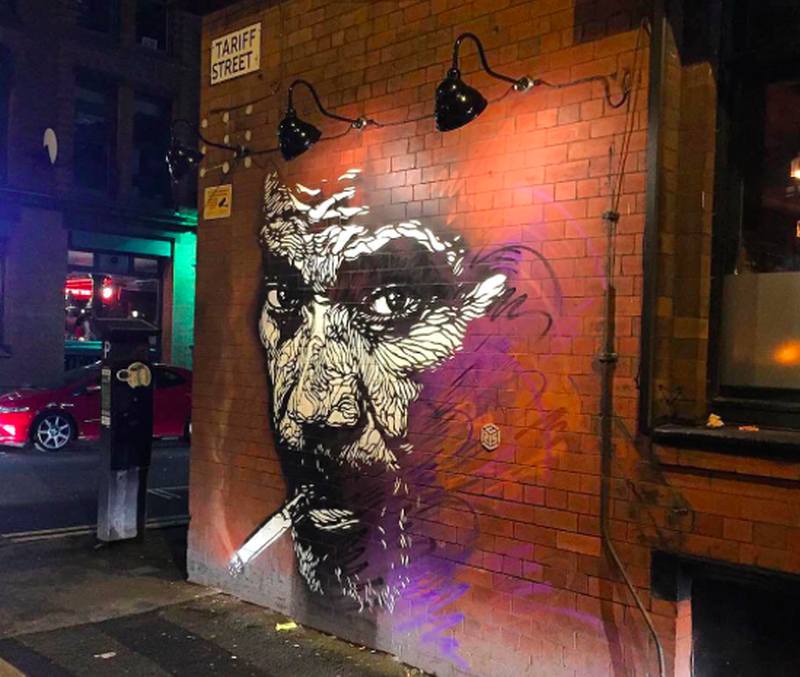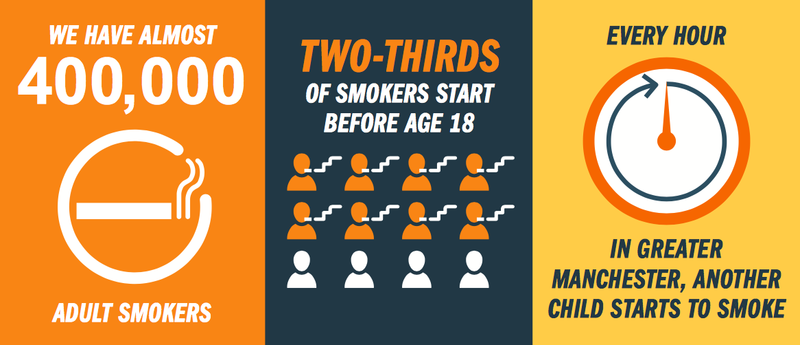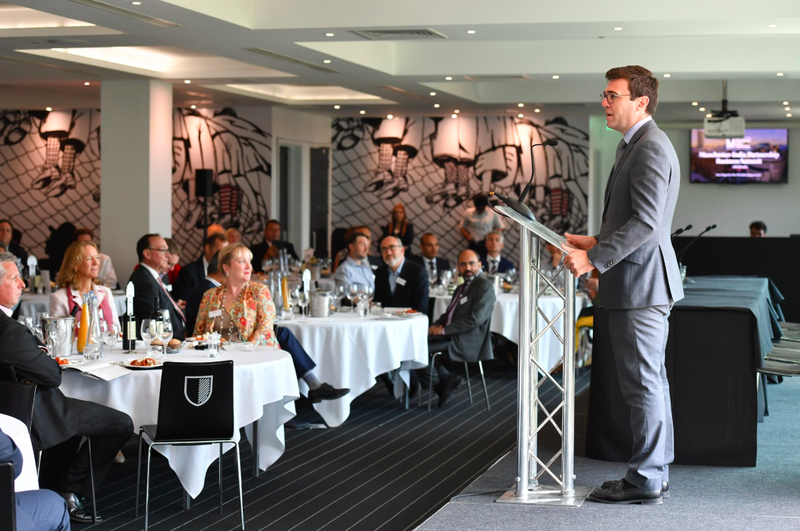This Stoptober, Lucy Tomlinson asks whether a campaign can get every smoker in Manchester to kick the habit
If you’re a smoker, you may have been feeling very unwelcome in Manchester recently. Over the summer, Andy Burnham launched the History Makers campaign, saying: “There will come a time when people look back and say: why did people ever smoke? I want to bring that date forward and have Greater Manchester at the forefront of the charge.”
Since then, there have been all sorts of events promoting the campaign, culminating in Stoptober (the month previously known as October, but then do any months go by their proper names any more?) being dedicated to everyone who wants to give up the noxious cancer sticks.
The idea is to reduce the amount of smokers in Manchester by a third by 2020
Manchester has a smoking problem. Around 4,500 people are dying of smoking-related diseases every year across Greater Manchester. That means thirteen people every day and one in every two adult smokers will die as a result of smoking. Lung cancer and COPD are especially prevalent here compared to other regions.
The headline idea of the History Makers campaign is to make Manchester smoking free. As in absolutely no smokers. Zip. Zilch. Nada. In actual fact, the small print says the idea is to reduce the amount of smokers in Manchester by a third by 2020 - that’s still an ambitious target, but one that is slightly more imaginable than zero smokers in Manchester.

FACING THE ODDS
One criticism levelled at the campaign is that there are many more important issues to tackle before bothering about smoking, particularly that there are more important things to spend our money on. This is a bit of a straw man; the campaign is relatively low-cost and could save huge amounts of money.
To put it in perspective, smoking is estimated to cost the NHS £3.6 billion a year - that’s purely for treating illnesses caused by smoking and doesn’t include problems where smoking is a contributory factor. You can also add on another £1billion for cleaning up cigarette butts and the cost of fires caused by cigarettes, plus less quantifiable costs caused by loss of productivity etc.
“So how is Burnham planning to wipe out smoking in Manchester?” asked the editor, when I mention the idea. “Erm, a survey?” I tentatively reply. Sounds pretty wussy: after all, what’s a quick questionnaire going to do against decades of addiction?
A pre-campaign analysis of Manchester smokers found that many of them had no idea of the odds they face if they continued to smoke long-term. More than nine out of ten smokers (92%) underestimated the ‘one in two’ risk of dying of a smoking-related disease, while 61% of these estimated the risk of dying from smoking as one in ten or less
The point of these statements is not to provide justification for legislation as such, but rather to harness the power of the thing humans fear most. No, not seeing Theresa May dancing again, but social disapproval.

Policy-makers are utilising what are known as nudge techniques.
To understand what’s going on here, we have to look at the current vogue in policy-making. In the past, classical economics had it that rational people act in their own best interests. According to this outlook, getting people to do sensible things like quitting smoking is as simple as telling them it is bad for them. Solution - stick up some adverts on billboards letting everyone know that smoking leads to death. Simple.
Except we all know that it doesn’t work like that. Human beings excel at delusional thinking - that is, knowing fine well that an action is bad for them but nevertheless convincing themselves that they will be the special ones who manage to escape the consequences. Mainstream advertising clearly is not going to work in the face of this self-deception. Enter behavioural economics, which means that - instead of figures of authority ordering us not to do stuff - policy-makers are utilising what are known as nudge techniques.
The specific nudge here focuses on how we want to fit in with what most people are already doing. One of its first uses in the UK was showing that HMRC could increase revenue of £30m a year in income tax simply by introducing new reminder letters informing recipients that most of their neighbours had already paid. One of the greatest motivators in the human psyche is social approbation - fitting in with what is considered the ‘done thing’. If you read that 89% of people think that smoking is the pits, then this will mean you are much less likely to smoke, at least in front of others.

The History Makers survey asked whether you agreed with emotive statements such as “I don’t want the tobacco industry to make an enormous profits selling a drug that kills” or “I want to protect children by banning smoking in front of, or very near to, places like schools, youth clubs and children’s sporting clubs”. You’d have to basically be Voldemort to disagree. And indeed, the percentage of people who agreed with statements was high - in the seventies and eighties.
My first instinct was to get on my classical liberal high horse and protest our rights to go to Hell in our own hand baskets. If people choose to kill themselves through smoking then, unless smoking becomes illegal, that’s their business. Trying to control smoking through subtle manipulation of behaviour rather than laying out our options and letting us make our own choices seemed creepily paternalistic.
The more I thought about this stance, the more I came to disagree with it. Smoking is an addiction and addiction is antithetical to choice. Research shows that most people who are addicted to smoking took it up as a child (that is under sixteen); a period when, let’s face it, you do a lot of stupid things that shouldn’t burden you for the rest of your life. Studies also show that the vast majority of people who smoke do actually want to give up but find it too hard.
But how can the opinions of other people pervade the sanctities of our own homes? What possible technology could we have invented in the last decade that would mean we care what others think of us more than ever?
MAKING HISTORY: LOCAL CHAMPIONS
And so the second prong of the Making Smoking History campaign was born. Instead of distant authority figures wagging their fingers, it’s all about relatable members of our community. In fact, you might even know some of the faces of the campaign (it’s certainly the idea that people are inspired by people they actually know, hence the use of ‘local champions’).
Fortuitously enough, this was the case for me - I recognised one of those local champions as North Manchester-based photographer Anna. I asked her why she decided to get involved in the campaign.
She replied: “I like that the campaign has used a range genuinely normal people (i.e. not actors or models). Everyone has had brilliant attitude and energy. Manchester has one of the highest rates of child asthma hospital admissions in the country, so this would minimise triggers. A smoke-free Manchester would be really progressive.”
Anna went on to point out that smoking is the biggest preventable cause of health inequality in the area. Basically it’s a vicious circle - if you are from a disadvantaged background you are more likely to smoke from a young age, and therefore have an addiction. You are then more likely to find it hard to give up because of stressful life events. Plus which any serious illness, again likely be caused or exacerbated by smoking, could well mean a very serious loss of earnings and support that people just can’t afford.

As much as I don’t like being nudged by Burnham et al, I have to admit he is right
Over in Wythenshawe Hospital, a more conventional but impactful project has just been launched. The CURE project hones in on patients admitted to hospital (who are more likely then average to be smokers), taking the admission as a unique ‘teachable moment’, where trained staff can support smokers to quit. In contrast to the Making History Campaign, CURE sees smoking as less of a matter of choice and focuses more on how to beat addiction, though of course the two approaches are interlinked. After a six-month trial, the plan is to roll out the project to the rest of Greater Manchester. When it does, the project designers predict they will be able to reduce admissions, save over £9 million and save over 3,000 lives.
Dr Matt Evison, Consultant in Respiratory Medicine at Wythenshawe Hospital, said: “It’s hugely exciting that Manchester is the first place in the UK to offer this support to smokers. A stay in hospital is often a time where people focus on their health, whether or not they’re being admitted for a condition related to their smoking. There is no greater step a smoker can take to improve their health than stopping smoking. But nicotine is highly addictive and smoking is a hard habit to kick without support and medication.”
Whichever method works best, it’s clear that smoking isn’t just an individual’s problem. It really impacts on all of us, all the more since the healthcare budget devolved. As much as I don’t like being nudged by Burnham et al, I have to admit he is right. This is a real chance to improve the health of our city. Let’s hope the campaign reaches its target and, at some point in the future, we can go back to calling October by its real name.
More info
Greater Manchester residents can call the Greater Manchester Stop Smoking helpline on 0300 123 1044 seven days a week, Monday to Fridays from 9am to 8pm and on Saturday and Sunday between 11am and 4pm.
You can visit the Stoptober website to sign up for email support or you can download the Stoptober App.
Most local pharmacies can also help you with quitting smoking.













